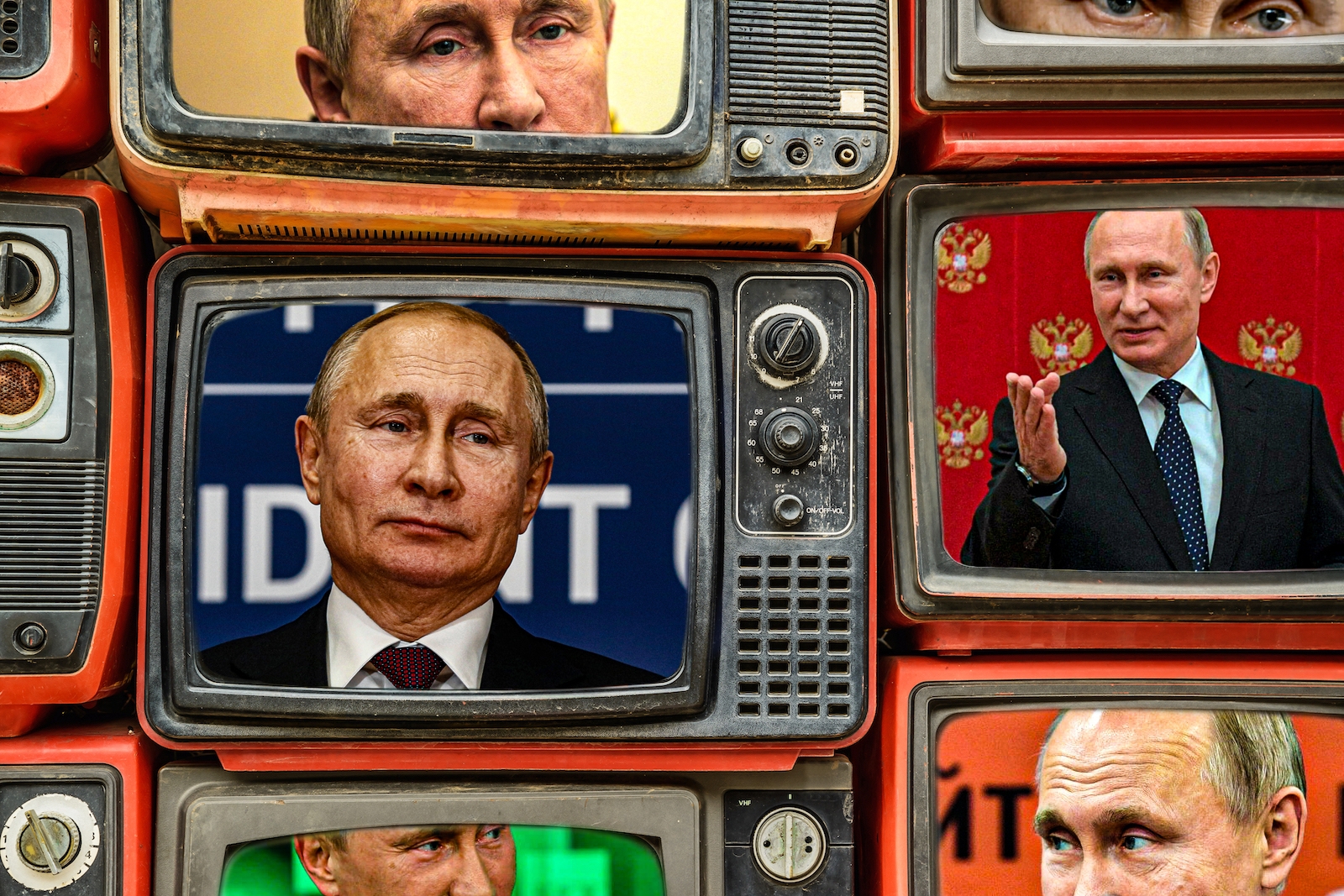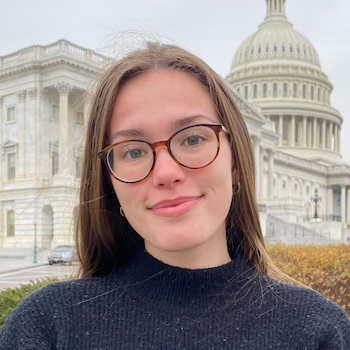
Russian Propaganda is Causing a Divide at Home and Abroad
Since Russia invaded Ukraine in late February, the narrative among Russians and the rest of the world have differed greatly.
The account inside Russia is that the Russian military is demilitarizing and de-Nazifying Ukraine. For the rest of the world, Russians are attacking a sovereign nation and killing thousands of people in the process. The difference in these stories can be attributed to state propaganda and the blocking of numerous news outlets and websites in Russia.
“We’re trying to understand what people are thinking, [and] we might have to start rethinking how we know and understand people’s true preferences,” said Adam Lenton, a professor at George Washington University who specializes in Russian security policy. “We’re seeing a situation where there’s a lot of subconscious denial.”
Lenton has spent years conducting research on Russian ethnic minorities, identity, and nationalism, and completed one of his graduate degrees at the Moscow State Institute of International Relations.
According to Lenton, over the last ten years, there has been a large shift in the public’s perception. In 2012, before Russia’s annexation of Crimea, “Russians were fed up with the government and the state was not as big a deal in their lives.” They lacked a strong sense of patriotism, and thus people were allowed to protest.
However, “In 2015, after the annexation of Crimea, the situation really started to change,” Lenton explained, as global polarization increased. In the 2016 U.S. presidential election, there was a desire for a more aggressive foreign policy and consequently, an increasingly marginalized opposition movement formed.
By 2017, the situation was further divided; not every Russian was completely supportive of their nation’s foreign policy, but they could now rationalize Crimea at least.
Now in 2022, we see the complete public marginalization of dissenting voices, independent media outlets have been shut down, anti-war protests prohibited, and engaging public opinion is becoming a lot tougher. “Under war conditions, it’s hard to know whether people’s responses are true or not because of war censorship and the initial ‘rally around the flag’ sentiment that you get,” said Lenton. Additionally, the cost of speaking out against the government could mean losing your job for government employees. To even call the war an “invasion” can result in up to 15 years in jail according to a new law passed by the Duma.
The years of build-up and these present-day factors have contributed to forming a nation that adheres to Putin’s laws and regards him as a strong leader. There is hope, though, that once economic conditions worsen and more is known about the Russian death toll, the public perception might shift.
To gain a better understanding of what specifically Russians are being told by their government, Eva Alshannikova, a Russian immigrant studying in Washington, explained her personal experience with Russian media and its impact on communication with her family back in Russia.
In the United States, Alshannikova is with her mother and father, but every other member of her family lives in Saint Petersburg. The frustration and distress that has developed over the last month was clear as Alshannikova expressed her concern over her family’s safety and awareness.
“The news in Russia is fake and all state propaganda,” Alshannikova said frankly. The very mention of “war” could result in jail time, instilling fear in many about speaking out. Instead, news reporters convey a different story to their viewers in which Russia is liberating Ukraine from its oppressors, and Putin is spearheading this noble effort. Alshannikova spoke of her firsthand experience with the success of Russian state propaganda, primarily through talking with her grandparents.
“From a U.S. perspective, it’s hard to believe,” Alshannikova admitted, but people like her grandparents who have been in Russia for decades, have grown up always believing that Russia is a responsible country, an idea that Putin has defended since taking office.
This long-standing belief has created a self-righteous mentality amongst Russians. This concept also aligns with Lenton’s remark that there is a sense of skepticism in Russian society, a legacy of the Soviet period. When criticisms are made about Russian actions, a common response is “this is no worse than what the West is doing” or “remember Syria, Libya, or Iraq.”
The deflection and denial in these phrases are powerful in convincing Russians that their government’s actions are justified, and the success of these phrases is exacerbated by the recent tightening of restrictions on news reporting. “It’s a conscious act to seek the truth,” said Lenton, and if the truth is being limited, then people are likely to believe what is being told to them instead.
In a follow-up interview, Alshannikova served as a translator for her mother, Olga Lisogurskaya. Lisogurskaya now lives in Wayland, Massachusetts but was raised in Saint Petersburg until 2004 when she left for a better life in the United States. Today, all of Lisogurskaya’s family remains in Saint Petersburg, including her parents, sister, cousins, and others. In the last 19 years since leaving, Lisogurskaya has kept in contact with her family, but in the last few months, communication has become difficult due to how Russian propaganda has manipulated the minds of those within Russia.
Lisogurskaya explained that her family believes in Russian state propaganda. The message from the government has been that their troops have been welcomed by Ukrainians in order to combat Nazis and oppression and take down their “fascist” government. With this warped account of the situation, many Russian citizens refuse to believe the true destruction and devastation that Russia has caused.
The response when Lisogurskaya attempted to inform her sister has been negative. Mentions of bombings have been brushed off as “Ukrainian opposition,” not Russian aggression. An additional barrier to educating her sister, and for many other Russians, has been the inability to read English. Those who are unable to read or speak English are immediately limited to information written in Russian, which tends to paint Putin in a favorable light. Those who do speak English are much more likely to be accurately informed, and thus concerned.
This was the case for Alshannikova’s cousin who lives in Saint Petersburg with the rest of his family, but fortunately learned English at school. When Russia first attacked Ukraine in late February, he read English news sources about the events before the government established its restrictions on news coverage and was able to flee to Istanbul. His main fear was possibly being drafted into the Russian military.
The language barriers and limited access to information have caused misinformation both within Alshannikova’s family and within Russia on a much larger scale. At this point, the state propaganda being put forth has outweighed any outside information regarding Russian attacks.
The extent to which Russia can control its media and the spread of misinformation has allowed Putin and his allies to form a narrative that protects their image amongst the Russian public, however, as more sports leagues, restaurant chains, travel agencies, banks, and other international entities pull out of Russia there is little Putin can do to suppress the truth.

